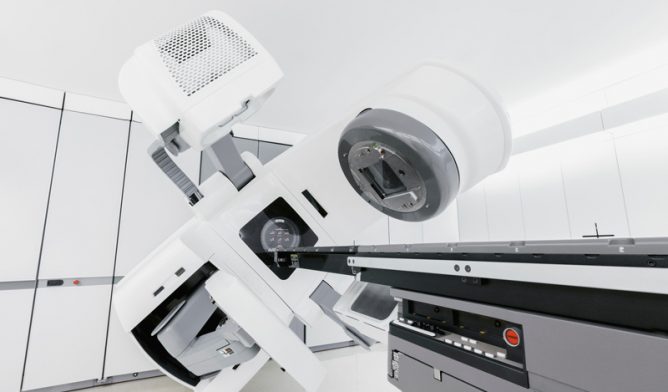Study to Clarify Radiation Benefits in Mesothelioma Patients
Research & Clinical TrialsWritten by Tim Povtak • Edited By Walter Pacheco
Asbestos.com is the nation’s most trusted mesothelioma resource
The Mesothelioma Center at Asbestos.com has provided patients and their loved ones the most updated and reliable information on mesothelioma and asbestos exposure since 2006.
Our team of Patient Advocates includes a medical doctor, a registered nurse, health services administrators, veterans, VA-accredited Claims Agents, an oncology patient navigator and hospice care expert. Their combined expertise means we help any mesothelioma patient or loved one through every step of their cancer journey.
More than 30 contributors, including mesothelioma doctors, survivors, health care professionals and other experts, have peer-reviewed our website and written unique research-driven articles to ensure you get the highest-quality medical and health information.
About The Mesothelioma Center at Asbestos.com
- Assisting mesothelioma patients and their loved ones since 2006.
- Helps more than 50% of mesothelioma patients diagnosed annually in the U.S.
- A+ rating from the Better Business Bureau.
- 5-star reviewed mesothelioma and support organization.
Testimonials
My family has only the highest compliment for the assistance and support that we received from The Mesothelioma Center. This is a staff of compassionate and knowledgeable individuals who respect what your family is experiencing and who go the extra mile to make an unfortunate diagnosis less stressful. Information and assistance were provided by The Mesothelioma Center at no cost to our family.LashawnMesothelioma patient’s daughter
How to Cite Asbestos.com’s Article
APA
Povtak, T. (2020, October 16). Study to Clarify Radiation Benefits in Mesothelioma Patients. Asbestos.com. Retrieved April 25, 2024, from https://www.asbestos.com/news/2020/03/03/mesothelioma-radiation-surgery-benefits/
MLA
Povtak, Tim. "Study to Clarify Radiation Benefits in Mesothelioma Patients." Asbestos.com, 16 Oct 2020, https://www.asbestos.com/news/2020/03/03/mesothelioma-radiation-surgery-benefits/.
Chicago
Povtak, Tim. "Study to Clarify Radiation Benefits in Mesothelioma Patients." Asbestos.com. Last modified October 16, 2020. https://www.asbestos.com/news/2020/03/03/mesothelioma-radiation-surgery-benefits/.

An upcoming phase III clinical trial involving the National Cancer Institute should clarify the still-debatable benefits of using radiotherapy in combination with aggressive surgery for patients with pleural mesothelioma.
The trial will be the first multicenter, randomized study measuring both safety and potential survival benefits of intensity-modulated radiation therapy (IMRT) and pencil-beam scanning with pleurectomy and decortication surgery and chemotherapy.
The trial is sponsored by NRG Oncology and will involve several mesothelioma specialty centers across the country. The goal is to enroll a combined 150 patients.
Only half will receive IMRT after surgery, giving researchers a clear comparison.
“It will be an important trial. At this point, the role of radiation with mesothelioma is not entirely proven,” Dr. Vivek Verma, radiologist at Allegheny General Hospital in Pittsburgh, told The Mesothelioma Center at Asbestos.com. “It’s hard, with a rare cancer like this, to get adequately powered randomized studies to evaluate the benefit. This next trial should provide some answers.”
Benefits of IMRT with Surgery Still Debated
Although radiation therapy is still being used in mesothelioma treatment, its use remains selective and sometimes controversial.
Results from earlier, smaller studies have been mixed, often questioning the side-effect tradeoff and any survival benefit. Cases of severe toxicities have been documented following radiotherapy for pleural mesothelioma.
Guidelines from the National Comprehensive Cancer Network (NCCN), which many centers adhere to, are equivocal in recommending radiotherapy for mesothelioma.
“RT under such circumstances after P/D [pleurectomy and decortication] is usually not recommended. Hemithoracic IMRT after P/D may be considered in centers with experience and expertise in these methods,” the NCCN guidelines read.
NRG Oncology Study Provides Perspective
The upcoming trial comes in the wake of a recently published study that will serve as a lead-in endorsement for anyone questioning the safety aspect.
Practical Radiation Oncology published the results, a retrospective compilation of 10 smaller studies that looked at the use of IMRT at various levels after lung-sparing surgery.
“Our study provided a framework, a solid foundation for the randomized trial,” lead-author Roshal Patel, MD Anderson Cancer Center in Houston, told The Mesothelioma Center at Asbestos.com. “Let’s see what prospective data (from the next study) has to say. If it shows patients having better outcomes with these advanced modalities, we can move in that direction of treatment.”
Verma also was part of the latest study.
In the various earlier studies of radiotherapy, median progression-free survival for pleural mesothelioma ranged from 12 to 16 months and median overall survival from 19 to 28 months.
Only 1.5% of the patients experienced grade 4 or grade 5 pneumonitis, an inflammation of the lungs that could lead to permanent scaring.
The incidence of grade 3 pneumonitis ranged from 0% to 16%. In eight of the 10 studies, the grade 3 rate of pneumonitis was less than 9%.
Researchers said the systematic review “produced relatively few higher-grade toxicities with reasonable disease-related outcomes.”
“Our study suggests that this approach is safe and can be considered in well-selected patients,” the authors said. “Other guidelines continued to move toward this conclusion, but acknowledge that evidence is still limited.”
In the earlier studies, one had a two-year survival rate of 59%, while another was only 35%.
Proponents Believe IMRT Has Benefits
The recent change in surgical philosophy for mesothelioma has contributed to the debate over radiation therapy.
A decade ago, thoracic surgeons often were using the more aggressive extrapleural pneumonectomy — removing the entire diseased lung — for maximum tumor cell resection, allowing the delivery of high doses of radiation without serious toxicity risk.
In recent years, though, most of the surgeries have been pleurectomy and decortication — sparing the lung — which requires more radiation to avoid collateral damage.
Proponents believe that when combined with surgery and chemotherapy, IMRT can improve survival time, relieve pain and help prevent remaining tumor cells from moving into new areas.
Detractors point to the potential side effects, including inflammation of the lining around the heart, shortness of breath, fluid buildup and calcification of the lymph nodes.
Radiation often is recommended in combination with chemotherapy for patients who are not candidates for surgery.
“The management of mesothelioma continues to evolve, both in the surgical and radiological realm,” Verma said. “We don’t definitively know the benefit [of radiotherapy]. This next trial should provide an answer one way or another.”







